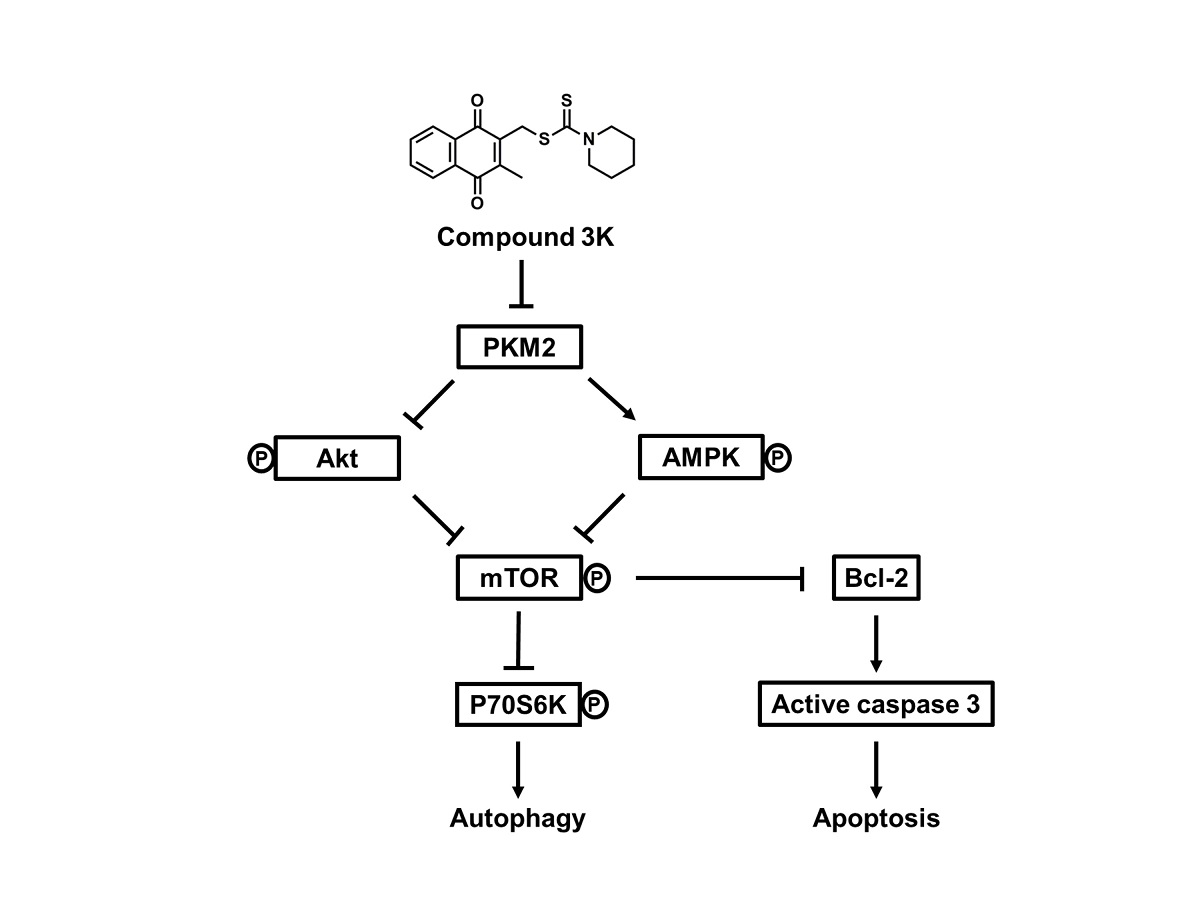Ovarian cancer is the common cause of death among gynecological cancers. Although ovarian cancer initially responds to chemotherapy, the frequent recurrence in patients remains a therapeutic challenge. Pyruvate kinase M2 (PKM2) plays a pivotal role in regulating cancer cell survival. However, its therapeutic roles remain unclear. Here, we investigated the anticancer effects of compound 3K, a specific PKM2 inhibitor, on autophagic and apoptotic pathway regulation in SK-OV-3 (PKM2-overexpressing human ovarian adenocarcinoma cell line). The anticancer effect of compound 3K was examined using the MTT and colony formation assay in SK-OV-3. The results of tissue microarray showed that PKM2 expression positively correlated with the severity of the tumor. Moreover, the expression of pro-apoptotic proteins increased in SK-OV-3 following compound 3K treatment. Compound 3K induced AMPK activation, which was accompanied by the inhibition of mTOR. Additionally, this compound inhibited glycolysis, resulting in reduced proliferation in SK-OV-3. Compound 3K treatment suppressed tumor progression in vivo xenograft model. Our findings suggest that the inhibition of PKM2 by compound 3K affected Warburg effects and induced autophagic cell death. Therefore, the use of specific PKM2 inhibitors to block the glycolytic pathway and target cancer cell metabolism represents a promising therapeutic approach for treating PKM2-overexpressing ovarian cancer.

